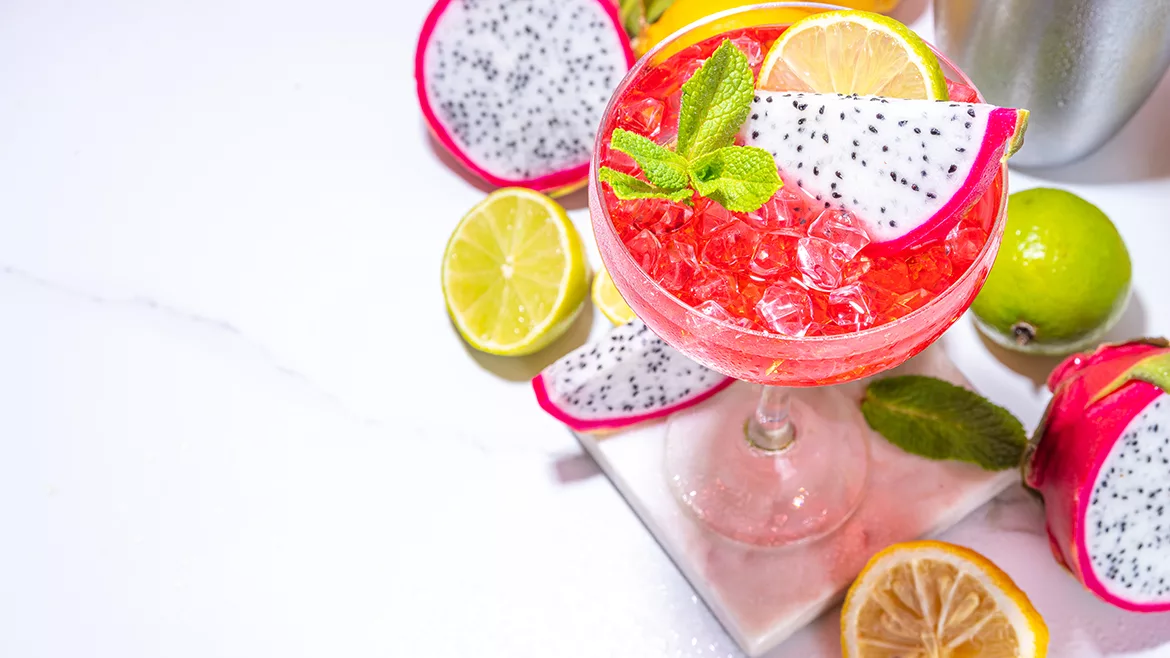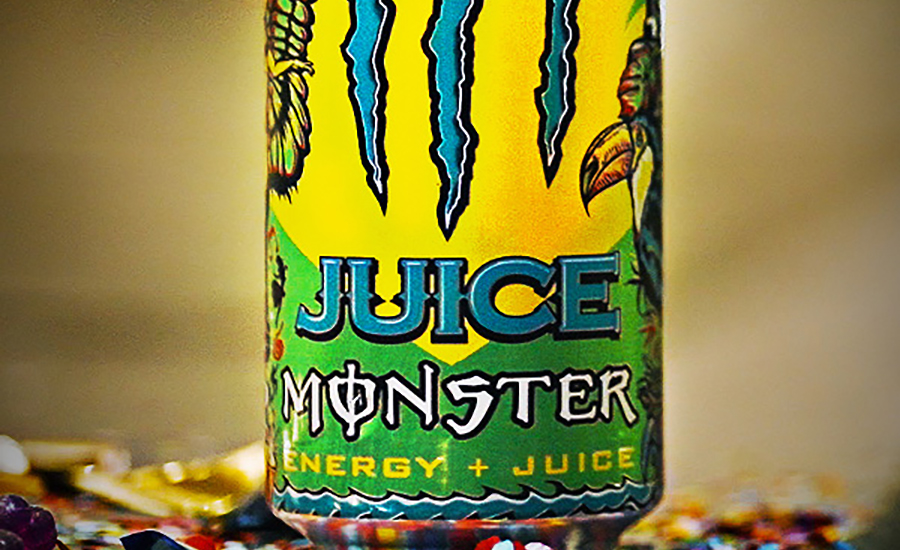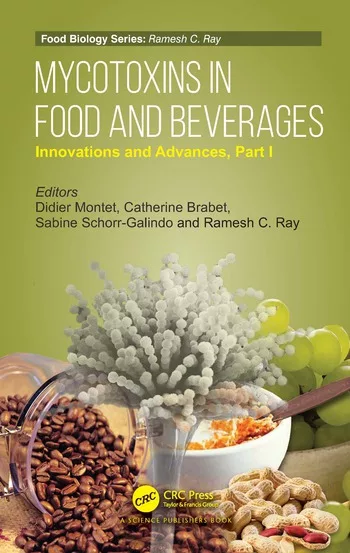Beverage-makers turn to exotic fruits to satisfy consumers’ cravings
Exotic fruits help unique beverage formulations stand out on shelves

It’s no secret that health and wellness trends are hot right now.
In the beverage sector, such trends are playing a role in the use of exotic fruits as ingredients.
Paul Orosco, fruit and vegetable specialties category manager at Cambridge, Mass.-based Global Organics, says that health and wellness trends have significantly driven the demand for exotic fruits in beverage formulations.
“Consumers are increasingly looking for functional beverages that deliver not only great taste, but also nutritional benefits,” Orosco shares. “Exotic fruits like guava and passion fruit are rich in vitamins, antioxidants and natural immune-boosting properties, aligning perfectly with clean-label and health-conscious consumer demands. As a supplier distributor, sourcing these fruits means balancing availability with the need for high quality.”
Melissa Nasits, beverage innovation director at Monin, Clear Water, Fla., notes that, from electrolyte beverages to energy drinks, exotic fruit profiles are growing in popularity, especially in functional beverages.
“Consumer education plays a big part in this trend continuing,” she says. “Previously lesser-known flavors like yuzu and dragon fruit are becoming more mainstream and, as consumers become familiar with these taste profiles, they become curious to learn more about the actual fruits. And many exotic fruits offer wellness benefits, making them even more appealing to mindful consumers.”
Also pointing to functional health benefits is Lawrence, N.J.-based iTi Tropicals’ Innovation Team, Kyra Appleby, Don Giampetro and Andrew Carr. The team notes that consumers increasingly are emphasizing their desire for beverages that support health, especially immune health. In turn, this has boosted the use of exotic fruits for their functional health benefits.
“Concerns about sugar intake, specifically the distinction between added and natural occurring sugars, and preferences for lower-calorie options are key drivers behind this shift,” Appleby, Giampetro and Carr say. “The global pandemic has further intensified consumer interest in immunity-boosting ingredients. To meet this demand, beverage manufacturers are incorporating exotic fruits rich in vitamins, minerals, antioxidants and phytochemicals.”
Further, exotic fruits enhance juice content, reduce added sugars and lower calorie counts, the iTi team adds, which creates beverages that not only taste great, but also support overall wellness.
Other trends, such as consumer appetite for novel and exciting flavors, are contributing to the use of exotic fruits as a beverage ingredient, the experts note.
“Consumers seek new taste experiences while still gravitating toward familiar flavor profiles,” Appleby, Giampetro and Carr explain. “Exotic fruits provide a perfect bridge by blending seamlessly with well-known ingredients.”
Additionally, the iTi experts note that the global consumer base values exotic fruits that evoke nostalgia and a sense of home.
“This cultural connection inspires beverage-makers to incorporate tropical fruits that resonate with diverse backgrounds,” they add.
William Grand, CEO of Naples, Fla.-based NutriFusion, shares how exotic fruits aid beverage-makers in the marketplace.

“The use of trendy exotic fruits in beverages helps companies differentiate themselves from their competitors,” he says. “Many consumers, particularly millennials and Gen Z, are often drawn to new and exciting flavor profiles, which exotic flavors can provide.”
Monin’s Nasits explains that consumers are “excited to experiment” with unique flavors in their favorite applications, like tropical refreshers or spicy cocktails.
“Operators can create exciting, seasonal beverages by pairing exotic profiles with fruits consumers already know and love, such as passion fruit and peach, dragon fruit and coconut, or yuzu and pineapple,” Nasits says. “Consumers are also interested in supporting businesses that align with their priorities. They want to support small growers and the countries dependent on their local products, and want to learn about how these ingredients make it from the garden to their glass.”
She notes that she has always advocated that “stories sell products,” and says exotic fruits have great stories.
Sydney Byrne, marketing manager at Sensient Flavors and Extracts, Hoffman Estates, Ill., echoes similar sentiments. She shares that exotic fruits are a way for consumers to branch out and try new flavor profiles. Like the other experts, Byrne also notes that exotic fruits help brands stand out on the shelf.
“Flavors, and especially exotic fruits flavors, are a very approachable way to branch out beyond the basics and offer differentiation by flavor,” she says. “Exotic fruits also bring a lot of other connotations that provide a more inclusive sensory experience. They are often brightly colored, innately sweet without the need to add extra sugar, bring other complex notes to round out the flavor and provide a tropical or global vibe — all desirable characteristics for younger consumers, in particular.”
Exotic is exciting
In beverage formulations, certain exotic fruits are used more frequently than others.
iTi’s Appleby, Giampetro and Carr list the following as the most popular in the beverage industry:
- Passion fruit: Known for its vibrant color, tropical aroma and intensely refreshing taste.
- Coconut water: A hydrating ingredient packed with essential electrolytes, vitamins and minerals.
- Acerola: Valued for its exceptional vitamin C content, offering 25 times the recommended daily intake in a 3.5-ounce serving.
- Dragon fruit: Beloved for its striking color, exotic name and familiar, yet exciting, flavor.
- Mango: Celebrated for its familiar, yet tropical, taste that pairs well with a variety of other fruits.
- Açaí: A nutrient-dense superfood loaded with antioxidants.
Monin’s Nasits points to unique flavor profiles and unfamiliar exotic fruits emerging on the scene.
“Yuzu is continuing to be a big driver for us at Monin thanks to its unique flavor profile, which is both intriguing and incredibly approachable,” she says. “We are beginning to see exploration into even more fruits that may not be commonly known — yumberry, starfruit and honeyberry are just a few of those emerging fruits. The big question is: which of these will be the next dragon fruit?”
Sensient’s Byrne says that dragon fruit, passion fruit, guava and prickly pear are trending, noting that these fruits have been popping up in beverage formulations.
“However, exotic is obviously a relative term,” she adds. “What is exotic for some may be traditional for others. It can be helpful to think about fruit flavors on a scale from familiar, moving through tropical and exotic and all the way to super exotic or unfamiliar. In that group, prickly pear and dragon fruit are a little less familiar and still on the rise.”
Global Organics’ Orosco lists the following benefits of using exotic fruits in beverages:
- Nutritional value: High levels of vitamins, minerals and antioxidants.
- Flavor appeal: Distinct, unique flavor profiles that stand out in crowded markets.
- Clean-label solutions: Natural sweetness, color and flavor, reducing the need for additives.
- Storytelling potential: Exotic fruits offer origin stories and sustainability narratives, enhancing consumer engagement.
iTi’s Innovation Team shares multiple benefits, including distinctive flavor profiles.
“Passion fruit, for example, delivers a sweet-tart tropical flavor with aromatic top notes that mask off-flavors from nutrient-dense ingredients,” they say.
Vibrant natural colors and nutritional boosts are two other benefits, Appleby, Giampetro and Carr note.
“Fruits like pink guava and red dragon fruit create visually striking beverages with natural hues,” the team says. “ … Coconut water’s essential electrolytes and acerola’s high vitamin C content enhance health benefits.”
Additionally, exotic fruits provide beverages with superfood potential.
“Açaí provides antioxidants, omega fats, protein and fiber, making it a highly desirable ingredient,” iTi’s team adds.
Facing exotic fruit challenges
When working with exotic fruits, there are certain challenges beverage-makers should consider.
Availability and cost will be the biggest challenges, according to Monin’s Nasits.
“Unknown tariffs and issues with future harvests can be difficult to forecast,” she warns. “The other issue is convincing cost-conscious buyers to spend their money on something they have never had before and aren’t sure if they will like.”
Nasits says the last factor is why flavor combinations work so well in introducing exotic fruits that are still in the inception stage to consumers.
Sensient’s Byrne notes that exotic fruits’ characteristics can cause unique challenges in formulations.
“While there are a lot of benefits to incorporating exotic fruit flavors into your beverages, it can also be a complicated process to understand how their different characteristics and flavor notes not typical in more traditional fruit flavors can cause some taste nuances in beverage formulation,” Byrne shares. “Working with an experienced flavor house can provide insight into the trends surrounding exotic fruits, along with the technology to bring out a true-to-fruit flavor in your product.”
Global Organics’ Orosco points out that exotic fruits often come from specific regions, which can create supply constraints due to seasonality, weather conditions or logistical hurdles.
“Additionally, variability in taste and quality across harvests can impact formulations,” he says. “Exotic fruits may carry higher costs due to global shipping and processing requirements.”
iTi’s Appleby, Giampetro and Carr share similar thoughts regarding cost and sourcing issues. Fruits like oranges, apples and grapes are not always domestically produced, the team adds, and domestic options can be just as costly as imports. But challenges go beyond price.
“Ensuring consistent quality, safety and a superior final product is even more critical,” the team says. “While creating innovative formulations with exotic fruits can be exciting, securing a reliable source for high-quality ingredients can be difficult. They best way to overcome these challenges is to establish trusted, transparent relationships with suppliers who prioritize quality and reliability.”
A perfect pairing
Traditional flavors work well with exotic fruit flavors.
Sensient’s Byrne shares that common flavor pairings include more familiar fruit flavors, such as mango, pineapple, lime, lemon, orange or berry flavors. Botanicals also are popular.
“However, there is an art to making a perfect match,” she notes. “There’s really no one-size-fits-all answer here. The right pairing depends on the characteristics of the exotic fruit you want to incorporate and on the end goals for your beverage.
“A master flavorist will know all the off-notes and top-notes any exotic fruit brings and can recommend the best pairing based on what aspect you are trying to heighten and what you want to minimize,” Byrne continues. “Those recommendations will vary based on your target market and your product goals.”
Monin’s Nasits says flavors like blueberry, pineapple and peach are seeing a resurgence on social media and menus.
“Expect to see exotic flavors used in nostalgic food and beverages for a unique twist,” she says. “Incorporating spice also continues to work well with exotics. Many of the tropical flavors are sweet, so adding a little heat or acid can make them much more approachable.”
The exotic fruit trend is not new and it’s not going anywhere, Nasits notes.
“We are contributing to see the numbers support growth and adoption,” she shares. “They are unknown enough in North American markets to be exciting and inspiring, while the risk involves in trying becomes minimal since the flavors are readily available. It is a very nice balance that business owners and developers can use to their advantage to appeal to consumers across all demographics.”
Global Organics’ Orosco says that the future of exotic fruits in beverages looks promising, thanks to continued innovation and consumer demand for natural, functional beverages driving growth.
Flavors, and especially exotic fruits flavors, are a very approachable way to branch out beyond the basics and offer differentiation by flavor.
“Sustainability will also play a key role — beverage-makers will need to prioritize ethical sourcing and transparent supply chains to meet both consumer expectations and environmental standards,” he states.
Similarly, Sensient’s Byrne anticipates that exotic fruit flavors in beverages is a trend that isn’t going anywhere.
“The flavors that are popular now will eventually move through that spectrum of familiarity, making way for new exotic fruit flavors to establish themselves,” she says. “The trend continues while the specific flavors change and evolve. As one exotic fruit matures into a more mainstream flavor, another one takes its place, tapping into a new region or cultural cuisine.”
Byrne states that one way to track an exotic fruit’s level of maturity as it works its way through the spectrum of familiarity is to follow its evolution from cocktail bars and high-end restaurants to shelves.
iTi’s Innovation Team express that the future of exotic fruits in beverages is expansive. There are opportunities extending beyond discovering the next trendy fruit to exploring innovative applications, the trio adds.
Moreover, Appleby, Giampetro and Carr point to functional beverages and low-calorie, low-sugar options as areas of growth.
“Ingredients like acerola and coconut water will continue gaining traction for their nutritional benefits,” the team says. “Exotic fruits will play a central role in reducing added sugars while enhancing natural sweetness and flavor.”
New product formats are another area of growth iTi’s experts predict.
“Expect to see exotic fruits used in creative beverage platforms, including ready-to-drink (RTD) products, functional shots and plant-based drinks,” the team concludes. “As consumer preferences evolve, beverage-makers will continue exploring exotic fruits to craft products that are both flavorful and health-conscious.”
Looking for a reprint of this article?
From high-res PDFs to custom plaques, order your copy today!









